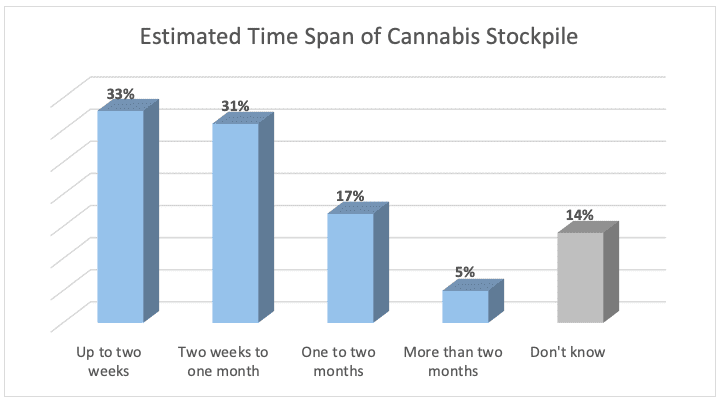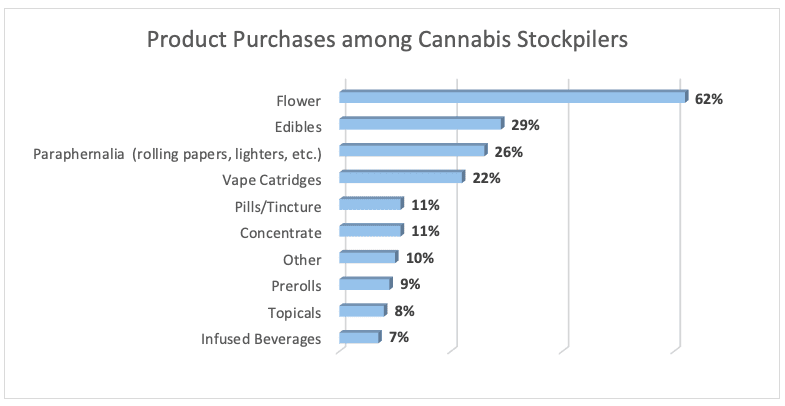Author:

The US Department of Education has released details of its $14 billion dollar support program for colleges and universities as outlined through the federal CARES Act. Half of the funding is mandated to support student need with housing, healthcare, course materials and living expenses, while the other half of funding to support costs associated with instructional delivery.
According to officials, funding formulas were determined by federal enrollment figures, percentages of full-time Pell Grant recipients, and percentages of students who were not enrolled in online courses prior to the outbreak.
The following is a breakdown of listed payments to all two-year and four-year historically black colleges and universities recognized by the Department’s federal student loan program.
Officials say that funds earmarked for student support will be released immediately.
Alabama
Alabama A&M University
Total Funding – $9,121,201
Emergency Student Aid Funding Minimum – $4,560,601Alabama State University
Total Funding – $6,284,463
Emergency Student Aid Funding Minimum – $3,142,232Bishop State Community College
Total Funding – $2,871,392
Emergency Student Aid Funding Minimum – $1,435,696Gadsden State Community College
Total Funding – $3,756,166
Emergency Student Aid Funding Minimum – $1,878,083H. Councill Trenholm State Community College
Total Funding – $1,892,834
Emergency Student Aid Funding Minimum – $946,417J.F. Drake State Community College
Total Funding – $761,763
Emergency Student Aid Funding Minimum – $380,882Lawson State Community College
Total Funding – $3,522,022
Emergency Student Aid Funding Minimum – $1,761,011Miles College
Total Funding – $3,257,934
Emergency Student Aid Funding Minimum – $1,628,967Oakwood University
Total Funding – $1,573,749
Emergency Student Aid Funding Minimum – $786,875Shelton State Community College
Total Funding – $2,965,439
Emergency Student Aid Funding Minimum – $1,482,720Stillman College
Total Funding – $1,206,208
Emergency Student Aid Funding Minimum – $603,104Talladega College
Total Funding – $2,069,544
Emergency Student Aid Funding Minimum – $1,034,772Tuskegee University
Total Funding – $3,756,522
Emergency Student Aid Funding Minimum – $1,878,261
Arkansas
Arkansas Baptist College
Total Funding – $831,019
Emergency Student Aid Funding Minimum – $415,510Philander Smith College
Total Funding – $2,143,674
Emergency Student Aid Funding Minimum – $1,071,837Shorter College
Total Funding – $1,097,484
Emergency Student Aid Funding Minimum – $548,742University of Arkansas – Pine Bluff
Total Funding – $4,295,429
Emergency Student Aid Funding Minimum – $2,147,715
Delaware
Delaware State University
Total Funding – $5,565,920
Emergency Student Aid Funding Minimum – $2,782,960
District of Columbia
Howard University
Total Funding – $8,723,244
Emergency Student Aid Funding Minimum – $4,361,622University of the District of Columbia
Total Funding – $3,609,526
Emergency Student Aid Funding Minimum – $1,804,763
Florida
Bethune-Cookman University
Total Funding – $6,648,501
Emergency Student Aid Funding Minimum – $3,324,251Edward Waters College
Total Funding – $1,361,209
Emergency Student Aid Funding Minimum – $680,605Florida A&M University
Total Funding – $13,051,325
Emergency Student Aid Funding Minimum – $6,525,663Florida Memorial University
Total Funding – $2,154,643
Emergency Student Aid Funding Minimum – $1,077,322
Georgia
Albany State University
Total Funding – $5,137,088
Emergency Student Aid Funding Minimum – $2,568,544Clark Atlanta University
Total Funding – $6,064,349
Emergency Student Aid Funding Minimum – $3,032,175Fort Valley State University
Total Funding – $4,166,439
Emergency Student Aid Funding Minimum – $2,083,220Interdenominational Theological Center
Total Funding – $44,417
Emergency Student Aid Funding Minimum – $22,209Morehouse College
Total Funding – $2,947,819
Emergency Student Aid Funding Minimum – $1,473,910Morehouse School of Medicine
Total Funding – $147,523
Emergency Student Aid Funding Minimum – $73,762Paine College
Total Funding – $798,094
Emergency Student Aid Funding Minimum – $399,047Savannah State University
Total Funding – $6,374,932
Emergency Student Aid Funding Minimum – $3,187,466Spelman College
Total Funding – $2,804,294
Emergency Student Aid Funding Minimum – $1,402,147
Kentucky
Kentucky State University
Total Funding – $1,372,077
Emergency Student Aid Funding Minimum – $686,039Simmons College of Kentucky
Total Funding – $240,805
Emergency Student Aid Funding Minimum – $120,403
Louisiana
Dillard University
Total Funding – $2,442,809
Emergency Student Aid Funding Minimum – $1,221,405Grambling State University
Total Funding – $7,010,388
Emergency Student Aid Funding Minimum – $3,505,194Southern University and A&M College
Total Funding – $9,396,803
Emergency Student Aid Funding Minimum – $4,698,402Southern University at New Orleans
Total Funding – $2,481,663
Emergency Student Aid Funding Minimum – $1,240,832Southern University at Shreveport
Total Funding – $2,595,115
Emergency Student Aid Funding Minimum – $1,297,558Xavier University of Louisiana
Total Funding – $3,227,606
Emergency Student Aid Funding Minimum – $1,613,803
Maryland
Bowie State University
Total Funding – $6,596,246
Emergency Student Aid Funding Minimum – $3,298,123Coppin State University
Total Funding – $2,727,906
Emergency Student Aid Funding Minimum – $1,363,953Morgan State University
Total Funding – $9,263,592
Emergency Student Aid Funding Minimum – $4,631,796University of Maryland Eastern Shore
Total Funding – $3,542,365
Emergency Student Aid Funding Minimum – $1,771,183
Mississippi
Alcorn State University
Total Funding – $5,886,916
Emergency Student Aid Funding Minimum – $2,943,458Coahoma Community College
Total Funding – $3,136,873
Emergency Student Aid Funding Minimum – $1,568,437Jackson State University
Total Funding – $8,446,248
Emergency Student Aid Funding Minimum – $4,223,124Mississippi Valley State University
Total Funding – $3,079,829
Emergency Student Aid Funding Minimum – $1,539,915Rust College
Total Funding – $1,359,587
Emergency Student Aid Funding Minimum – $679,794Tougaloo College
Total Funding – $1,487,317
Emergency Student Aid Funding Miminum – $743,659
Missouri
Harris-Stowe State University
Total Funding – $2,513,580
Emergency Student Aid Funding Minimum – $1,256,790Lincoln University of Missouri
Total Funding – $3,494,532
Emergency Student Aid Funding Minimum – $1,747,266
North Carolina
Bennett College
Total Funding – $768,798
Emergency Student Aid Funding Minimum – $384,399Elizabeth City State University
Total Funding – $2,130,978
Emergency Student Aid Funding Minimum – $1,065,489Fayetteville State University
Total Funding – $5,084,687
Emergency Student Aid Funding Minimum – $2,542,344Johnson C. Smith University
Total Funding – $2,718,468
Emergency Student Aid Funding Minimum – $1,359,234Livingstone College
Total Funding – $2,503,063
Emergency Student Aid Funding Minimum – $1,251,532North Carolina A&T State University
Total Funding – $14,103,628
Emergency Student Aid Funding Minimum – $7,051,814North Carolina Central University
Total Funding – $8,932,233
Emergency Student Aid Funding Minimum – $4,466,117Saint Augustine’s University
Total Funding – $1,450,038
Emergency Student Aid Funding Minimum – $725,019Shaw University
Total Funding – $2,258,545
Emergency Student Aid Funding Minimum – $1,129,273Winston-Salem State University
Total Funding – $6,117,980
Emergency Student Aid Funding Minimum – $3,058,990
Ohio
Central State University
Total Funding – $3,645,811
Emergency Student Aid Funding Minimum – $1,822,906Wilberforce University
Total Funding – $689,372
Emergency Student Aid Funding Minimum – $344,686
Oklahoma
Langston University
Total Funding – $3,082,441
Emergency Student Aid Funding Minimum – $1,541,221
Pennsylvania
Cheyney University
Total Funding – $663,615
Emergency Student Aid Funding Minimum – $331,808Lincoln University of Pennsylvania
Total Funding – $2,565,804
Emergency Student Aid Funding Minimum – $1,282,902
South Carolina
Allen University
Total Funding – $1,589,675
Emergency Student Aid Funding Minimum – $794,838Benedict College
Total Funding – $4,372,336
Emergency Student Aid Funding Minimum – $2,186,168Claflin University
Total Funding – $3,738,216
Emergency Student Aid Funding Minimum – $1,869,108Clinton College
Total Funding – $233,942
Emergency Student Aid Funding Minimum – $116,971Denmark Technical College
Total Funding – $412,522
Emergency Student Aid Funding Minimum – $206,261Morris College
Total Funding – $1,481,212
Emergency Student Aid Funding Minimum – $740,606South Carolina State University
Total Funding – $4,062,087
Emergency Student Aid Funding Minimum – $2,031,044Voorhees College
Total Funding – $1,124,053
Emergency Student Aid Funding Minimum – $562,027
Tennessee
Fisk University
Total Funding – $1,085,474
Emergency Student Aid Funding Minimum – $542,737Lane College
Total University – $2,430,978
Emergency Student Aid Funding Minimum – $1,215,489LeMoyne-Owen College
Total Funding – $1,660,276
Emergency Student Aid Funding Minimum – $830,138Meharry Medical College
Total Funding – $219,976
Emergency Student Aid Funding Minimum – $109,988Tennessee State University
Total Funding – $7,214,661
Emergency Student Aid Funding Minimum – $3,607,331
Texas
Huston-Tillotson University
Total Funding – $1,630,192
Emergency Student Aid Funding Minimum – $815,096Jarvis Christian College
Total Funding – $1,888,040
Emergency Student Aid Funding Minimum – $944,020Paul Quinn College
Total Funding – $1,163,719
Emergency Student Aid Funding Minimum – $581,860Prairie View A&M University
Total Funding – $13,752,928
Emergency Student Aid Funding Minimum – $6,876,464Southwestern Christian College
Total Funding – $143,039
Emergency Student Aid Funding Minimum – $71,520Saint Phillip’s College
Total Funding – $3,427,506
Emergency Student Aid Funding Minimum – $1,713,753Texas College
Total Funding – $2,358,852
Emergency Student Aid Funding Minimum – $1,179,426Texas Southern University
Total Funding – $11,796,898
Emergency Student Aid Funding Minimum – $5,898,449Wiley College
Total Funding – $1,538,638
Emergency Student Aid Funding Minimum – $769,319
U.S. Virgin Islands
University of the Virgin Islands
Total Funding – $1,713,737
Emergency Student Aid Funding Minimum – $856,869
Virginia
Hampton University
Total Funding – $4,264,342
Emergency Student Aid Funding Minimum – $2,132,171Norfolk State University
Total Funding – $6,901,715
Emergency Student Aid Funding Minimum – $3,450,858Virginia State University
Total Funding – $6,855,810
Emergency Student Aid Funding Minimum – $3,427,905Virginia Union University
Total Funding – $2,251,677
Emergency Student Aid Funding Minimum – $1,125,839Virginia University of Lynchburg
Total Funding – $357,917
Emergency Student Aid Funding Minimum – $178,959
West Virginia
Bluefield State College
Total Funding – $1,296,174
Emergency Student Aid Funding Minimum – $648,087West Virginia State University
Total Funding – $1,650,103
Emergency Student Aid Funding Minimum – $825,052















